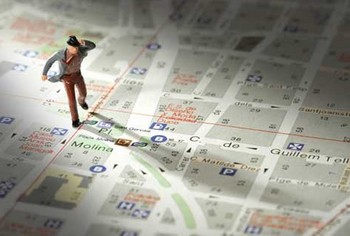While financial planning, inventory management and product research are important aspects to consider when opening a small business, location is probably the most important choice you can make. The truth is that the most amazing businesses can fail simply because they were founded in the wrong location.
Planning your business location is very important. Here are some details to consider when selecting the perfect destination for your entrepreneurial endeavors.
1. Competitor
Are the surrounding businesses competitive or complementary to your small business type? While you may want to stay away from companies that offer the same types of products as you, positioning yourself strategically next to a store that will increase your foot traffic may be a plus.
2. Local Labor Market
What type of employee would you like to hire? Should they be highly educated professionals or students? Make sure you are in an area where you can hire the type of people you want to work for you.
3. Future Growth
If you have found an area you are passionate about, make sure there is room for growth. This detail is very important for certain businesses that have the goal of growing in the future. You don’t want to settle down and build a client base only to move due to a lack of space.
4. Demographics
Think about whether the area you are located in is consistent with the image you want to present to customers. Can consumers easily access your property? Whether you rely primarily on foot traffic or drive-by traffic, find an area that fits the needs of your customers.
5. Financial sources
There are many financial details to consider before construction begins. In addition to clearly defining what tasks you are capable of, you will want to check out the following business banking choice:
- Hidden Costs: There is very little livable space available for your particular type of business and may need some work done to accommodate your needs. When looking at a room, think about how much work it would take to get your business ready to open its doors.
- Tax: Not only are there state sales and income tax rates, but there are also property taxes to consider.
- Minimum wage: Although the federal government mandates a minimum hourly wage of $7.25, you will find that it varies from state to state.
- Small Business Loans: If you’ve applied for a small business loan, for the most part Banks of San Diego will need a business plan outlining your location and details of operations.
6. Zoning Regulations
Zoning regulations determine what types of businesses are allowed in certain locations. Check with your local planning agency to see if the property of interest is properly categorized for your type of small business.
7. Security
Crime rate is another important detail to consider. How safe is your store front when you leave the building at night? Is there security available? Taking the proper safety precautions can save you a lot of money down the road.
Opening a small business can be exciting, frustrating and overwhelming all at the same time. With the right planning, organization, and location, you can increase your chances of business success.
Charlie McCartney from Marketing Robots. Follow him on Twitter @robthemarketer or read his blog for more information on marketing and small business best practices.








